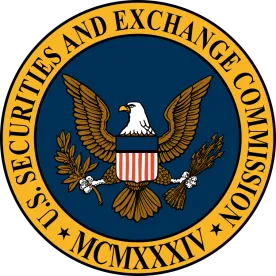Over the past two months, the Securities and Exchange Commission has taken a number of steps to modernize the rules relating to when companies can exclude shareholder proposals from company proxy statements. In November 2019, SEC Chairman Clayton indicated that these actions are part of the SEC’s “ongoing work to enhance the accuracy, transparency and effectiveness of our proxy voting system”. The SEC’s actions have included issuing updated guidance on the SEC’s interpretation of the existing shareholder rules as well as proposing amendments to the rules themselves. The result is that public companies should familiarize themselves with the rules relating to shareholder proposals and the implications of these recent developments.
BACKGROUND ON RULE 14a-8
Rule 14a-8 under the Securities Exchange Act of 1934, as amended, requires public companies subject to the federal securities laws to include shareholder proposals in their proxy statements to shareholders. The purpose of this rule is to provide shareholders with the ability to present their own proposals for consideration at a shareholder meeting. In recent years, shareholder proposals have addressed environmental, social and political matters, such as proposals relating to the disclosure of political spending, the cost of certain environmental actions, as well as the gender pay gap and workplace diversity. These proposals have also included matters relating to general corporate governance and the compensation of certain directors and C-suite officers.
Companies generally try to exclude these proposals, citing the relative disclosure burden and that many of these matters are within the discretion of the company’s management.[1] A company, however, may only exclude a proposal if the shareholder-proponent does not satisfy certain eligibility requirements or the proposal fails to meet the specified substantive requirements that are designed to ensure that the shareholder proposal process is not excessively or inappropriately used by shareholders.
ELIGIBILITY EXCLUSIONS FOR SHAREHOLDER PROPOSALS
Rule 14a-8 imposes several eligibility requirements on shareholders who wish to submit proposals for inclusion in a proxy statement. The current rule requires, amongst other things, that a shareholder may only submit one proposal per meeting, must have continuously owned at least $2,000 or 1% of the securities entitled to vote for one year and must limit a proposal to 500 words.
On November 5, 2019, the SEC issued a press release proposing an update to these eligibility requirements. This update, the first since 1954, would require a shareholder-proponent to have continuous ownership of at least (i) $2,000 of the company’s securities for at least three years; (ii) $15,000 of the company’s securities for at least two years; or (iii) $25,000 of the company’s securities for at least one year. The SEC also added an engagement component to the eligibility criteria requiring a statement from each shareholder-proponent that he, she or it is able to meet with the company between 10 and 30 calendar days after submission of the proposal and that the proponent provide relevant contact information to the company. The SEC’s reasoning for this new requirement is that many shareholder-proponents use a shareholder proposal as a way to open a dialogue with management, rather than to have a particular matter actually go to a vote of the company’s shareholders. The SEC believes that the new requirements will facilitate conversations between the parties that lead to a more mutually satisfactory and less burdensome resolution of the matter. The SEC also proposed an amendment to apply the one-proposal rule to “each person” rather than “each shareholder”. This amendment would prevent a shareholder-proponent from submitting one proposal in his, her or its own name and simultaneously serving as a representative to submit a different proposal on another shareholder’s behalf, when both are for consideration at the same meeting.
In addition, the SEC proposed amendments to modernize the current voting thresholds for the resubmission of proposals that were previously submitted for a vote at prior meetings and failed. The current rule provides that shareholder proposals that fail to achieve 3%, 6% and 10% of shareholder approval when included in proxy statements once, twice or three or more times, respectively, in the last five years, are not eligible for inclusion in a later proxy statement. The SEC is proposing to increase these thresholds to 5%, 15% and 25%, respectively. The SEC noted that it was concerned that the low resubmission thresholds allow proposals that have not received widespread support from shareholders to nevertheless be included in proxy statements year after year with little chance of being approved. Similarly, the SEC proposed a “momentum requirement” that would allow companies to exclude proposals from a proxy statement that concern substantially the same subject matter as a proposal previously voted on three or more times in the last five years, but that would not otherwise be excludable under the proposed 25% threshold. Under the “momentum requirement” a proposal could be excluded if: (i) the most recently voted on proposal received less than 50% of the votes cast, and (ii) support for the proposal declined by 25% or more compared to the immediately preceding shareholder vote on the matter. The SEC’s reasoning for this “momentum requirement” is that if a proposal has been voted on three or more times and has seen its support decline by 25% or more, then it lacks the momentum of support among shareholders and is unlikely to be approved at a future shareholder meeting.
SUBSTANTIVE EXCLUSIONS FOR SHAREHOLDER PROPOSALS
Although a shareholder-proponent may satisfy the eligibility requirements, a proposal may nevertheless be excluded under Rule 14a-8 if it falls into one of thirteen substantive exceptions that allow for exclusion. A company may exclude a proposal from its proxy statement if it is: (1) improper under state law; (2) a violation of law; (3) a violation of proxy rules; (4) related to a personal grievance or furthers a personal interest; (5) related to operations that account for less than 5% of the company’s total assets and less than 5% of net earnings and gross sales; (6) related to an action that the company lacks the authority to implement; (7) a matter relating to the company’s ordinary business operations; (8) one of specifically enumerated actions related to director elections; (9) in conflict with one of the company’s own proposals; (10) already substantially implemented; (11) substantially a duplicate of another proposal already submitted; (12) a resubmission that does not meet the threshold criteria previously discussed above; or (13) related to specific amounts of cash or stock dividends.
In determining when to exclude a shareholder proposal, companies most often cite the “ordinary business operations exception” set forth in Rule 14a-8(i)(7). This exception allows a company to exclude a proposal that relates to ordinary business matters that can be resolved by management and the board of directors. In October 2019, the SEC issued new guidance reiterating its position that the ability of a company to exclude a shareholder proposal under the “ordinary business exception” rests on two central considerations. One must consider, first, the significance of the subject matter of the proposal on the company, and, second, how the proposal impacts the ability of management to operate the company.
Significance
Shareholder proposals that are significant do not fall within the scope of the ordinary business exception and may not be excluded from a proxy statement. The SEC’s October guidance noted that “proposals that raise matters that are so fundamental to management’s ability to run a company on a day-to-day basis that they could not, as a practical matter, be subject to direct shareholder oversight relate to a company’s ordinary business operations” and can be excluded. Proposals, however, that relate to such matters but focus on a significant policy issue are not excludable because they “transcend the day-to-day business matters and raise policy issues so significant that it would be appropriate for a shareholder vote”. Whether a proposal is significant depends on “the connection between the significant policy issue and the company’s business operations”. The SEC reiterated that it takes a “company-specific approach in evaluating significance, rather than recognizing particular issues or categories of issues as universally significant”. Therefore, the test for significance is based on facts and circumstances and a recognition that a “policy issue that is significant to one company may not be significant to another”.
In determining whether a company properly excluded a shareholder proposal, the SEC provided guidance that companies should provide the SEC with a description of the discussions at the board-level summarizing the board’s analysis as to whether the shareholder proposal is significant to the company. The SEC used the example of a telecommunications company and a proposal that sought greater disclosure of the company’s customer information privacy policy. In this example, the SEC proposed that the related board analysis could highlight how the company’s cybersecurity policy already addresses the issues covered by the proposal and how the difference between the two approaches would not raise a significant policy issue, thus allowing the company to exclude the proposal from its proxy statement. The SEC suggested that the board analysis for determining whether to exclude a shareholder proposal include a well-developed discussion describing all of the factors the board considered, which may include:
-
the extent to which the proposal relates to the company’s core business activities;
-
quantitative data, including financial statement impact, related to the matter that illustrates whether or not a matter is significant to the company;
-
whether the company has already addressed the issue in some manner, including the differences between the proposal’s specific request and the actions the company has already taken, and an analysis of whether the difference presents a significant policy issue for the company;
-
the extent of shareholder engagement on the issue and the level of shareholder interest expressed through that engagement;
-
whether anyone other than the proponent has requested the type of action or information sought by the proposal; and/or
-
whether the company’s shareholders have previously voted on the matter and the board’s views as to the related voting results.
Micromanagement
Under the SEC’s second consideration, a proposal may be excludable under the ordinary business exception if it is an attempt to “micromanage” the company. The analysis for this consideration “rests on an evaluation of the manner in which a proposal seeks to address the subject matter raised, rather than the subject matter itself”. The SEC noted that in considering arguments for exclusion of a proposal based on micromanagement, it looks to “whether the proposal seeks intricate detail or imposes a specific strategy, method, action, outcome or timeline for addressing an issue, thereby supplanting the judgment of management and the board”. For example, the SEC recently agreed that “a proposal seeking annual reporting on short-, medium- and long-term greenhouse gas targets aligned with the greenhouse gas reduction goals established by the Paris Climate Agreement, . . . and to pursue efforts to limit the increase [in global average temperature] to 1.5 degrees Celsius was excludable on the basis of micromanagement”. This proposal was excludable because it, “micromanaged the company by prescribing the method for addressing reduction of greenhouse gas emissions”.
However, the SEC indicated that, “a proposal framed as a request that the company consider, discuss the feasibility of, or evaluate the potential for a particular issue generally would not be viewed as micromanaging matters of a complex nature”. In contrast to the example above, the SEC did not believe that a proposal “seeking a report describing if, and how, a company plans to reduce its total contribution to climate change and align its operations and investments with the Paris Climate Agreement’s goal of maintaining global temperatures well below 2 degrees Celsius” should be excluded from a company’s proxy statement. This proposal was not excludable because the “proposal transcended ordinary business matters and did not seek to micromanage the company to such a degree that exclusion would be appropriate”. In the SEC’s view, the latter proposal did not micromanage the company because it deferred to the company’s management and board to consider if and how the company plans to reduce its carbon footprint and asked the company to consider the relative benefits and drawbacks of several actions.
In summary, the SEC’s guidance indicated that the SEC takes the view that “when a proposal prescribes specific actions that the company’s management or board must undertake without affording them sufficient flexibility or discretion in addressing the complex matter presented by the proposal, the proposal may micromanage the company to such a degree that exclusion of the proposal would be warranted”. However, in order to agree with a company that a proposal should be excluded for micromanagement, the SEC expects to see “an analysis of how the proposal may unduly limit the ability of management and the board to manage complex matters with the level of flexibility necessary to fulfill their fiduciary duties to shareholders”.
PRACTICAL CONSIDERATIONS
On a go-forward basis, public companies should continue to monitor the developments related to the SEC’s proposed amendments to the eligibility requirements and the reasons why, and procedure by which, a company can exclude a proposal from its proxy statement. If the amendments to the eligibility criteria become effective, it will become easier for companies to exclude shareholder proposals from proxy statements.
Notwithstanding the proposed amendments to the eligibility requirements, public companies should nevertheless be aware of the SEC’s guidance regarding their ability to exclude shareholder proposals on the basis that they relate to ordinary business operations. The SEC indicated that to determine whether a company may properly exclude a shareholder proposal, a company should provide the SEC with a board analysis detailing the significance or lack thereof of the shareholder proposal, as well as how the proposal may have the effect of micromanaging the company’s management or board. This analysis is a necessity since the board is in the best position to make these determinations, and the SEC will often defer to the board if such an analysis is provided.





 />i
/>i
